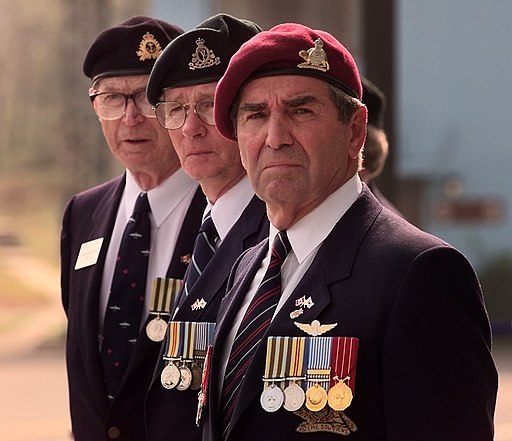
In a nation that owes a debt of gratitude to its military veterans, the importance of veteran service organizations (VSOs) working together cannot be overstated. These organizations play a vital role in supporting and advocating for veterans as they transition back to civilian life. Collaboration among these groups not only maximizes the impact of their efforts but also addresses the diverse and complex needs of the veteran community. The significance of unity among veteran service organizations and their collective efforts to enhance the well-being of those who have served, is imperative to a holistic service model approach.
I. Comprehensive Support Networks:
One of the key advantages of collaboration between veteran service organizations is the ability to create comprehensive support networks. Each organization typically specializes in certain aspects of veteran assistance, such as healthcare, education, employment, or mental health. By working together, these organizations can provide a holistic support system that addresses the multifaceted challenges faced by veterans. A seamless network ensures that veterans receive well-rounded assistance, enabling them to reintegrate successfully into civilian life.
II. Maximizing Resources and Expertise:
Collaboration allows veteran service organizations to pool their resources and expertise, thereby maximizing their impact. By sharing knowledge, best practices, and infrastructure, these organizations can operate more efficiently and effectively. This collaborative approach enables them to reach a broader audience, deliver more comprehensive programs, and address emerging issues facing veterans. Ultimately, it allows for a more strategic allocation of resources to meet the evolving needs of the veteran community.
III. Advocacy and Policy Influence:
Unified efforts among veteran service organizations amplify their collective voice in advocating for policies that benefit veterans. Whether it involves healthcare reform, employment initiatives, or educational support, a coordinated approach enhances their ability to influence lawmakers and policymakers. Through collaboration, VSOs can present a united front, underscoring the importance of prioritizing veterans’ needs and ensuring that their concerns are addressed at the legislative level.
IV. Fostering Innovation and Adaptability:
The challenges faced by veterans are dynamic and ever-changing. Collaborative efforts among veteran service organizations foster innovation and adaptability to address emerging issues. By sharing insights and staying informed about the evolving needs of veterans, these organizations can develop innovative solutions and stay ahead of the curve. This adaptability ensures that veterans receive relevant and timely support in an ever-changing societal landscape.
V. Building a Stronger Community:
Beyond the practical benefits, collaboration among veteran service organizations contributes to building a stronger and more interconnected veteran community. The sense of unity among these organizations sets a positive example for veterans, encouraging them to seek support and engage with the various resources available. This collective approach fosters a supportive environment where veterans feel understood, valued, and empowered to overcome challenges.
The collaboration of veteran service organizations is not merely a strategic choice; it is a moral imperative to honor the sacrifice and service of our military veterans. By working together, these organizations create a formidable force capable of addressing the diverse needs of the veteran community comprehensively. The impact of their collective efforts goes beyond individual successes; it strengthens the fabric of our society by ensuring that those who have served our nation receive the support they deserve as they transition to civilian life.
